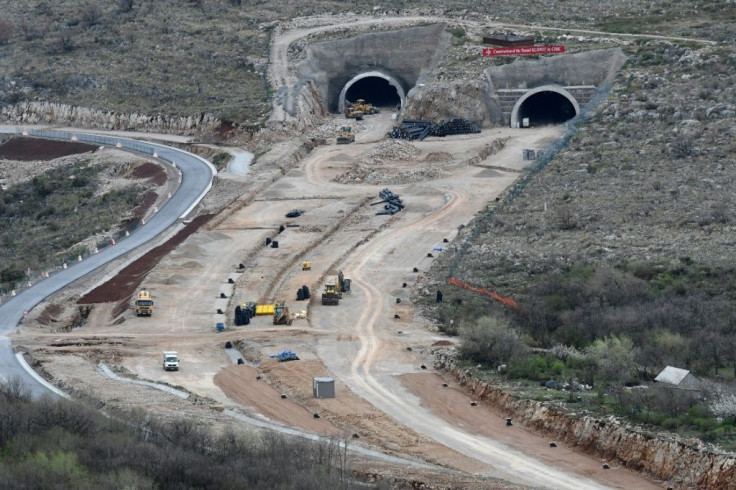Montenegro Tries To Cool EU Row Over $1 Billion China Road
Montenegro's finance minister on Friday tried to ease concern over a near $1 billion Chinese-backed road project, insisting the country could afford to repay the debt and did not need EU help.
The project is part of a huge wave of Chinese investments across the Balkan region, which has sparked concern that governments have become too reliant on Beijing's money.
The NATO country, which is pushing for EU membership, took out the $944 million (788 million euro) loan in 2014, but the project has been dogged by allegations of corruption and doubts over its viability ever since.
Finance Minister Milojko Spajic, part of a government that took power last year after three decades of rule by the socialists, had been widely quoted this week as saying Montenegro wanted EU help to repay or refinance the debt he inherited.
The reports prompted the bloc to flatly reject the idea, but Spajic told AFP the claims were based on misunderstandings.
"As we have already said, no request for taking over, payment or assistance in repaying the Chinese debt was sent to the European Commission, and therefore it could not be rejected," he said.
And he insisted the country is in a position to service the loan, with 14 years of repayments due to start in July.
"Montenegro has stable and sustainable public finances and can regularly finance all its debts and obligations to international partners," he said.
The public debt in Montenegro, a state of 600,000 people on the Adriatic coast, stood at 97 percent of GDP last year and the coronavirus pandemic has wrecked the tourism industry, its main source of income.

The country borrowed from China and engaged a Chinese company to build the 165-kilometre (100-mile) road to link the Adriatic resort town of Bar with the Serbian border in the north as part of a bid to boost the economy.
But the massive loan will cover only the first 41-kilometre stretch, which pushes through tough landscape with tunnels and bridges, fuelling claims that the project is among the most expensive roads in the world.
The first phase was meant to finish in May 2019, but the deadline has been pushed back to November this year.
Montenegro still needs to fund the rest of the road to the border, and Serbia itself is yet to sign agreements for the construction of a final mountainous section that will see unbroken motorway reach its capital, Belgrade.
The saga has underlined China's growing role in the region, not only with big infrastructure projects but also more recently supplying hundreds of thousands of coronavirus vaccine doses.
In a report in February, the European Council on Foreign Relations (ECFR) think-tank described Montenegro as a "textbook example of debt-trap diplomacy" -- when one country saddles another with unmanageable debt to increase its leverage.
Unconfirmed reports suggest the motorway contract includes a stipulation that China can take control of land and assets if Montenegro cannot make the repayments.
Montenegro is a frontrunner for EU membership in a region that has traditionally been a theatre of competition between Russia and the West.
Experts are now warning that China is a serious rival and that the European Union will need to work hard to avoid losing influence.
The ECFR said China was "on the cusp of acquiring real leverage over policy choices, political attitudes, and narratives in some parts of the Western Balkans".
© Copyright AFP 2024. All rights reserved.











